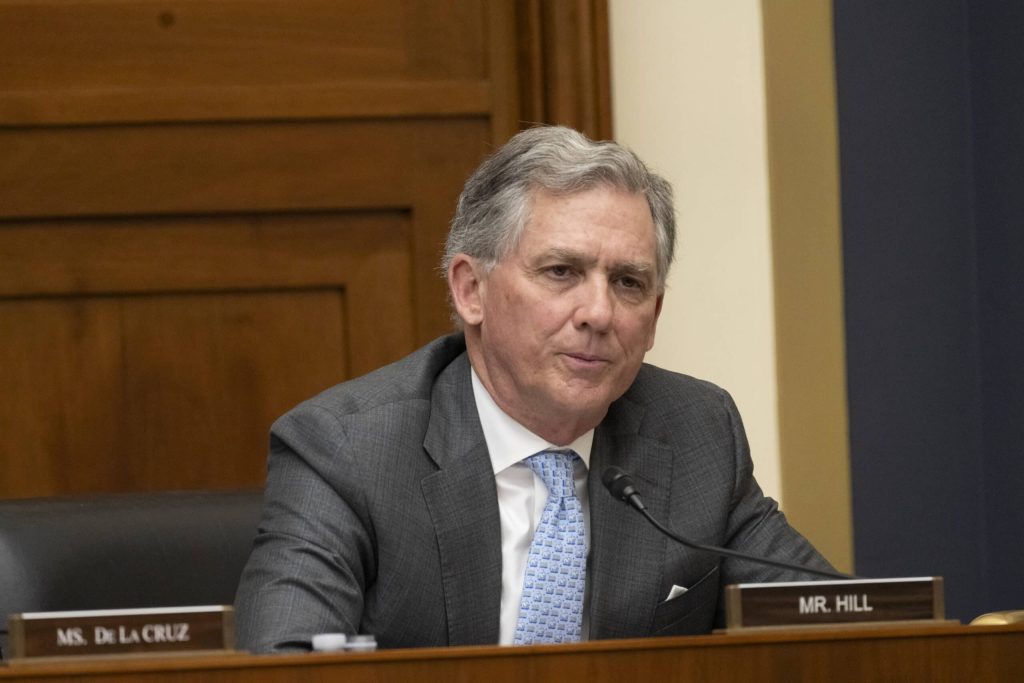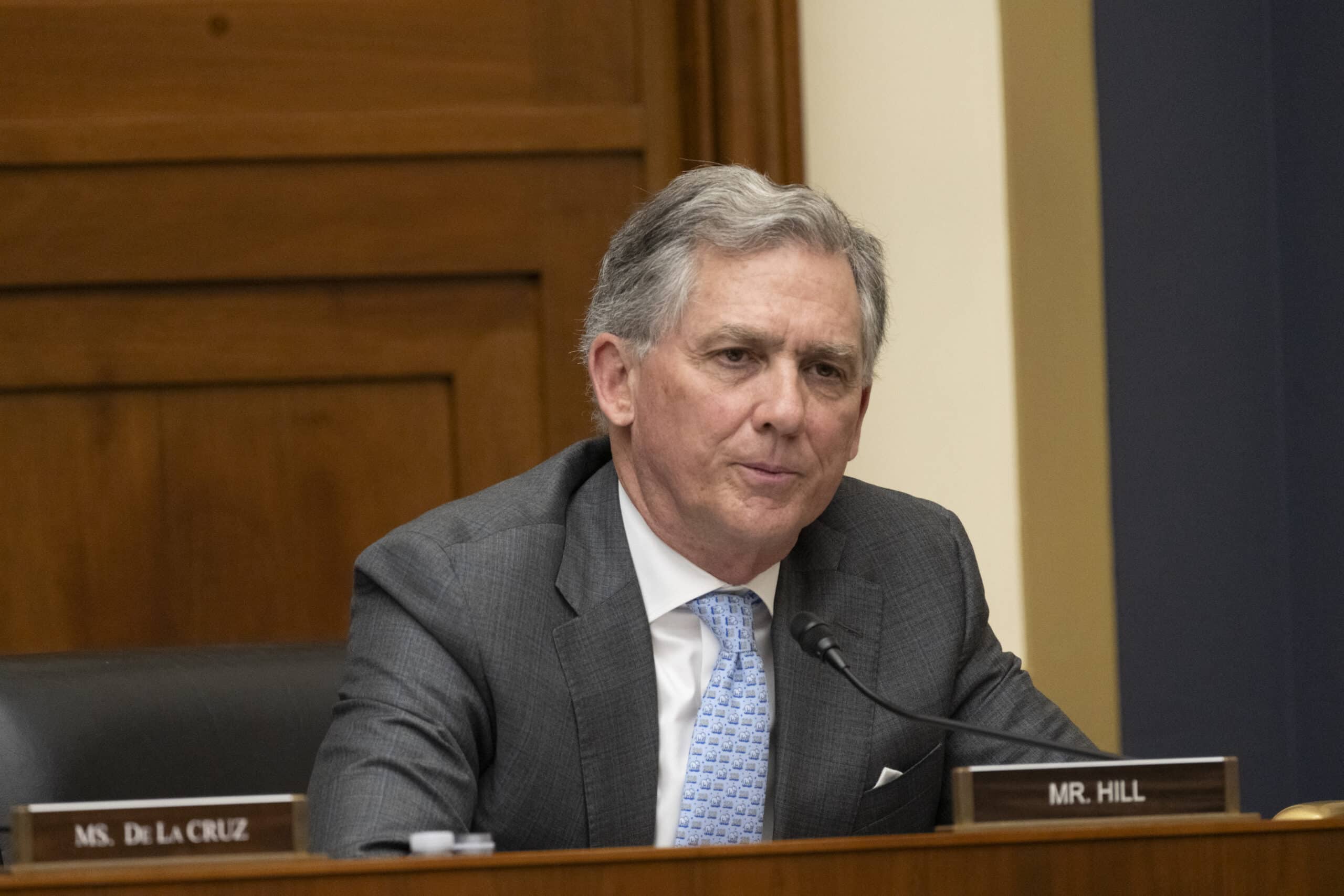
Some Democrats fear the STABLE Act will not stop stablecoin issuers from becoming insolvent. If one fails, members of Congress said they don’t want the government to save it.

Arkansas Representative French Hill is Chair of the Financial Services Committee.
Associated Press
Posted April 3, 2025 at 10:54 am EST.
Members of the House Financial Services Committee feuded over whether or not to add an amendment banning Congress from bailing out stablecoin issuers should they become insolvent to the STABLE Act, a proposed piece of legislation to regulate the $240 billion stablecoin market, in a markup session on Wednesday.
None of the three amendments raised by Democratic representatives Brad Sherman, Bill Foster, and Stephen Lynch were approved. Still, the discussion was illustrative because it highlighted Democratic frustration with the close ties between the crypto industry and many of their counterparts on the committee, as well as general concerns about the stability of the crypto industry overall.
“They’ve got the best consultants U.S. dollars can buy, and they want you to vote for them [crypto companies] on everything,” said Democratic Representative Brad Sherman (CA), who introduced an amendment saying that Congress would not bail out a stablecoin issuer in case of the asset’s collapse. “But they especially want you to vote against this amendment because they want to create an image that they are the same as the banks: that they are the pillars of the economy and if they get in trouble, they will be bailed out, and therefore your money is safe even when Sam Bankman-Fried’s cousin takes the assets to Brazil or The Bahamas.”
The crypto industry’s donations to various members of Congress have been well-publicized after pro-crypto PACs raised over $245 million to spend on the November election, with at least $7 million of that given to sponsors and co-sponsors of the bill, according to Open Secrets.
Read More: Crypto Might Get Reality Check from Friendly U.S. Congress
Republicans pushed back on the amendments, arguing that key tenets of the legislation, such as clear guidance on acceptable forms of capital, would make bailouts a thing of the past. “Some of the comments made here are ‘We need a firewall.’ Well, guess what the firewall is? It’s the STABLE Act,” Chairman French Hill (AR) explained, animatedly, who agreed that the government should not bail out stablecoin issuers and did not think that a separate amendment was necessary. “It’s the mistakes made of not passing this bill several years ago that has delayed and created consumer risk.”
The Ghost of Circle’s 2023 De-pegging Crisis
In their arguments, several Democratic legislators pointed to the $60 billion stablecoin USDC, issued by the company Circle Internet Financial Limited, which just filed to go public, as a cautionary example. Its price fell to $0.88 after the run on Silicon Valley Bank in 2023 because $3.3 billion of its $32 billion in reserves held at the failed bank were uninsured. The FDIC ultimately ignored limits that state only $250,000 of this money was insured by the regulator, and took over the bank to make depositors, including Circle, whole.
Read More: Coinbase Aims to Jointly Pass Market Structure and Stablecoin Legislation in Congress
This episode was particularly traumatic for the industry, as Circle had always positioned itself as the responsible stablecoin issuer and foil to Tether, a Salvadoran-based company behind the eponymous $140 billion token that has never undergone an audit. Though the bill specifies that reserves must be held at insured institutions, demand deposits in excess of $250,000, even at insured depository institutions, are uninsured. When Democratic Representative Bill Foster (WI) reiterated this specific concern to Hill, who co-sponsored the bill, the Republican said that he would be open to discussing the matter.
Path to Passage
Read More: Stablecoin Bills Could Squeeze Out $140 Billion Tether
The debate is not slowing down the stablecoin bill’s momentum. The STABLE Act passed in the House late Wednesday night, while the Senate version of the bill, the Guiding and Establishing National Innovation for U.S. Stablecoins (GENIUS) Act passed the Senate Banking Committee last month, teeing up both bills for votes on the floor of either chamber of Congress in short order. At the White House Crypto Summit in early March, President Trump said he wanted to sign a bill by August.





